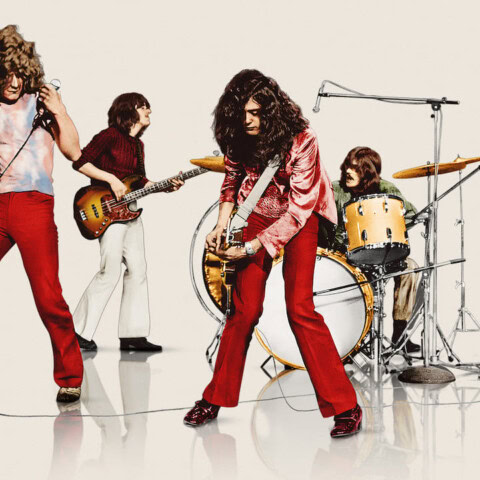Witchdoctor Rating
-
- 7.5/107.5/10
Summary
A war film that’s sort of not a war film, but sort of is, Dunkirk gets ANDREW JOHNSTONE’S conditional seal of approval.
 Mid-1940, and the Nazi war machine is on a roll, and as with every other army in Continental Europe, the British are in full retreat. And there are 400,000 army regulars trapped on a beach in Northern France with no way to get home.
Mid-1940, and the Nazi war machine is on a roll, and as with every other army in Continental Europe, the British are in full retreat. And there are 400,000 army regulars trapped on a beach in Northern France with no way to get home.
It’s a story of legend, and I remember as a wee kid listening to an audio dramatisation of Paul Gallico’s book The Snow Goose on Sunday morning children’s radio in the late 1960s. A parable about friendship and love built around the tale of a disabled sailor rescuing men from Dunkirk in his small vessel, it was an emotional narrative that never grew tired, though of the battle of Dunkirk itself, it is but a sketch in comparison with Nolan’s portrait.
Nolan examines the battle from four perspectives: a British Navy Commander (Kenneth Branagh) who is supervising the evacuations from the Dunkirk wharves, two spitfire pilots (Tom Hardy and Jack Lowden) who are doing what they can with limited fuel to protect the rescue flotilla, a father and son (Mark Rylance and Tom Glynn-Carney) navigating a small leisure craft across the English channel, and the army regulars (including pop star Harry Styles as Alex) struggling against ever diminishing odds.
Their individual stories mix and mingle through the use of shifting perspective, a technique Nolan uses effectively to heighten tension and create narrative drive. Otherwise, the devil is in the detail and Nolan is to be commended for his precise examination of the spitfire cockpit and other technology of the day. On the negative, his characters often tend toward the one-dimensional, and his set pieces can be manipulative and trite.
 With the exception of 2014 sci-fi epic Interstellar (where an otherwise pedestrian narrative is rescued by a fascinating exploration of quantum reality), I am no fan of Nolan’s work, and I wasn’t expecting much more from Dunkirk than a standard, action-heavy war flick. But while there is action, it is subdued, and to his credit, the director uses the psychology of fear to shore up the experience of war rather than the visceral CGI blood and gore that has been standard for blockbusters since Spielberg’s Saving Private Ryan (1998).
With the exception of 2014 sci-fi epic Interstellar (where an otherwise pedestrian narrative is rescued by a fascinating exploration of quantum reality), I am no fan of Nolan’s work, and I wasn’t expecting much more from Dunkirk than a standard, action-heavy war flick. But while there is action, it is subdued, and to his credit, the director uses the psychology of fear to shore up the experience of war rather than the visceral CGI blood and gore that has been standard for blockbusters since Spielberg’s Saving Private Ryan (1998).
Guardian film writer Andrew Pulver this week described Dunkirk in the hallowed company of Kubrick. No, it wasn’t that good, but it is visually spectacular, and if there had been a little less music, or better music (Hans Zimmer’s score was just plain in the way) then the Kubrick thing might have had a little more validity. As it was, the visuals alone told a compelling story and the rest (including the dialogue) was often superfluous.
Best performance? That would be Tom Hardy. All he has are his eyes to describe his situation to the camera, and yet he manages a virtuoso show. Cillian Murphy (Peaky Blinders, 28 Days Later) offers something special in a sub-plot as a rescued sailor suffering from PTSD, which challenges the viewer from all kinds of emotional angles. And of former teen pop star Harry Styles? He is surprisingly good. The other standouts were the father and son team navigating their small boat across the English Channel that – clunky dialogue aside – offers the viewer something wonderful about compassion, courage and commitment.
 Dunkirk is more than just a simple retelling of an important moment in British history; it is a stark reminder of the harm that is done by those who use war to fulfil ideological and egotistical ambitions. An economical and multi-faceted description of ordinary men facing their mortality, Dunkirk is a compelling step up for Nolan that may or may not be the film of the year as many are proclaiming. Of the best World War II films of the last 20 Years, Dunkirk is mostly mid-range.
Dunkirk is more than just a simple retelling of an important moment in British history; it is a stark reminder of the harm that is done by those who use war to fulfil ideological and egotistical ambitions. An economical and multi-faceted description of ordinary men facing their mortality, Dunkirk is a compelling step up for Nolan that may or may not be the film of the year as many are proclaiming. Of the best World War II films of the last 20 Years, Dunkirk is mostly mid-range.
The Best World War II Films Of The Last 20 Years:
The Thin Red Line (1998)
Saving Private Ryan (1998)
Enemy at the Gates (2001)
The Pianist (2002)
Downfall (2004)
Sophie Scholl: The Final Days (2005)
Black Book (2006)
Defiance (2008)
Flame and Citron (2008)
The Railway Man (2013)
Unbroken (2014)
Battle for Sevastopol (2015)
Anthropoid (2016)
Hacksaw Ridge (2016)














